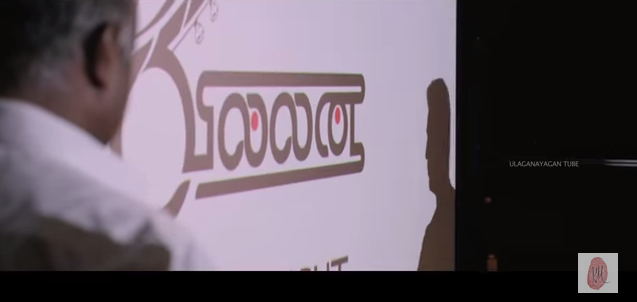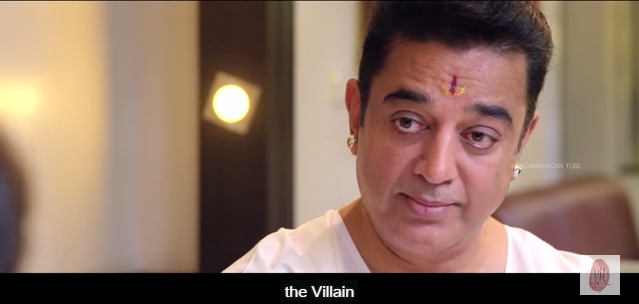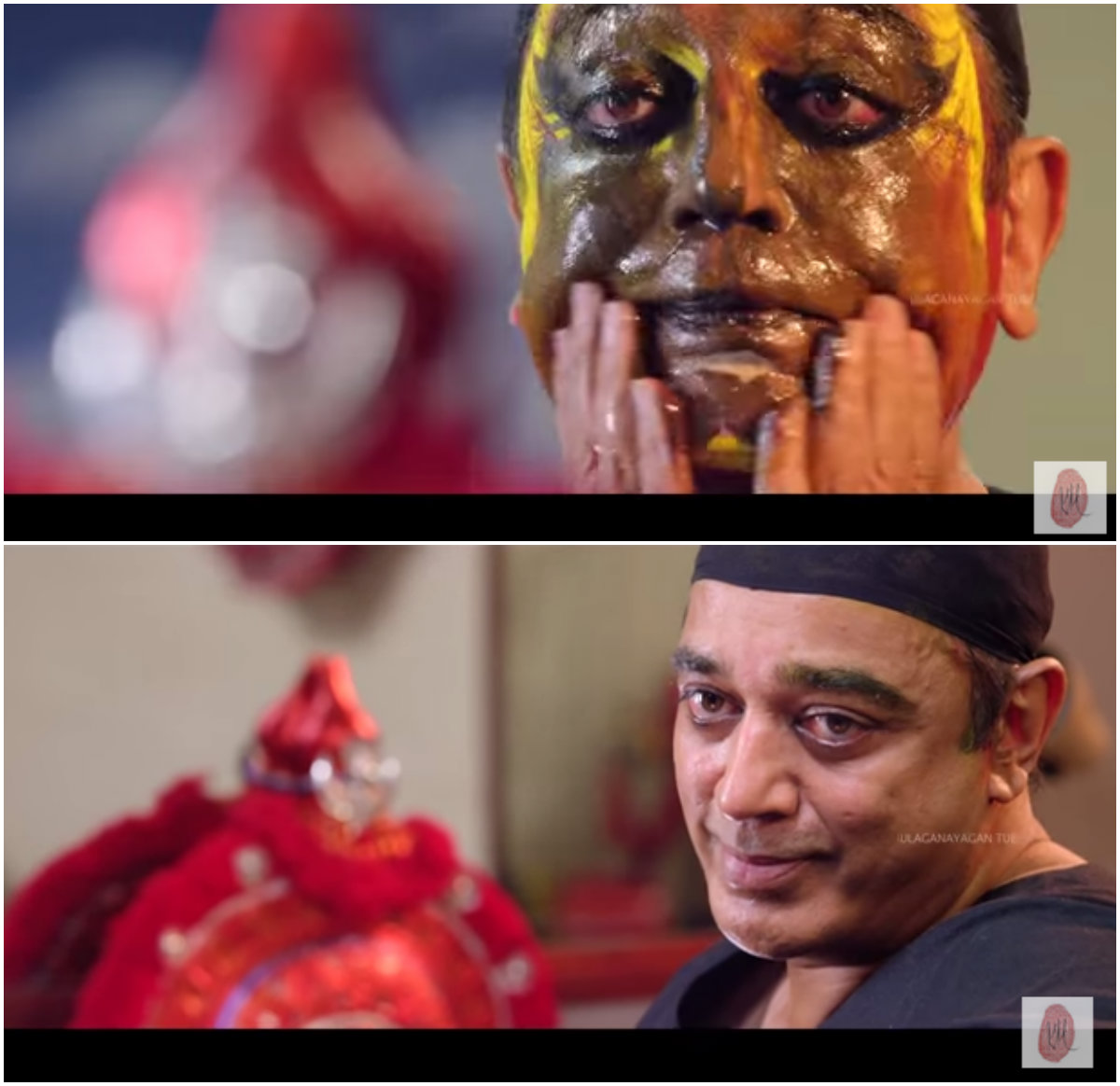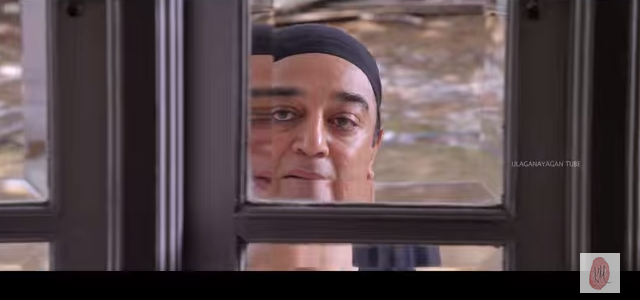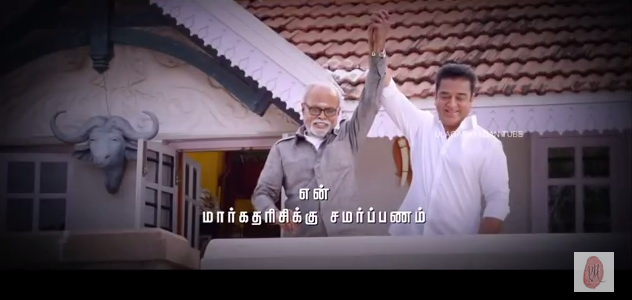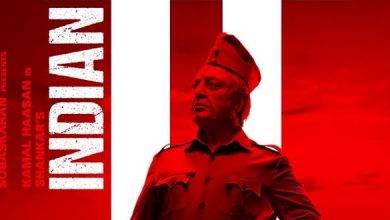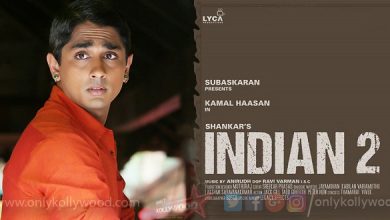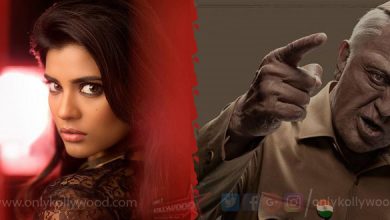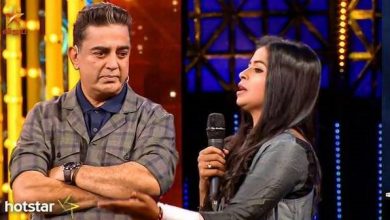Duality in Uttama Villain – The Immortal Meta Masterpiece
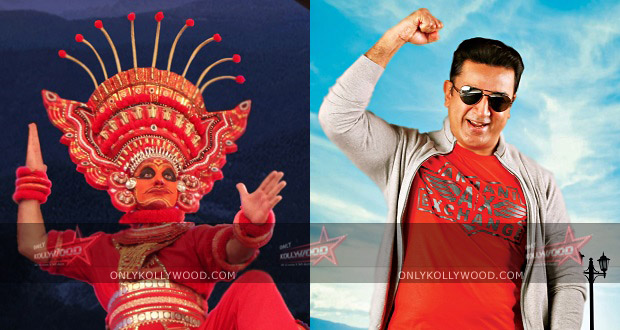
***SPOILERS AHEAD***
Kamal Haasan’s latest offering Uttama Villain is one of the finest films ever written in Tamil cinema. Or, the best written Tamil film of the last decade. While Vishwaroopam’s basic premise can be categorized as a story of two friends, Uttama Villain is mainly about the relationship between a father and his deserted daughter. More than the film’s two central topics – immortality and stardom, the story is mostly centred and structured on the relationship between Manoranjan (Kamal Haasan) and Manonmani (Parvathi Menon). Immortality and stardom are two tools which Kamal Haasan has smartly used to compliment this emotional turmoil within him.
It is only after my second viewing, I was fascinated by the intricately woven screenplay of Kamal. What an inspiring phenomenon he is. If Hey Ram is a text-book for film-making, Uttama Villain is Kamal Haasan’s master edition for screenwriting.
The two most important sequences in the film – Manoranjan’s confrontation with his disease for the first time and his first conversation with Jacob Zachariah are smartly underplayed with montages. Both of them happen at the party but the viewers are neither shown any conversation happening between Mano and Jacob about his daughter nor between Mano and Andrea about his disease.
From what I conceive, the subtext of the film is Manoranjan’s redemption.
And the duality in the screenplay is toppingly marvellous.
In the opening scene, Kamal’s first dialogue was “Sound set-u, volume kammi pannunga. Thala valikuthu,” but that doesn’t deter his ardent fans from showering applause and wolf-whistles for their idol. Coming out of the auditorium, he says, “Thala valikuthu” to Chokku (MS Bhaskar).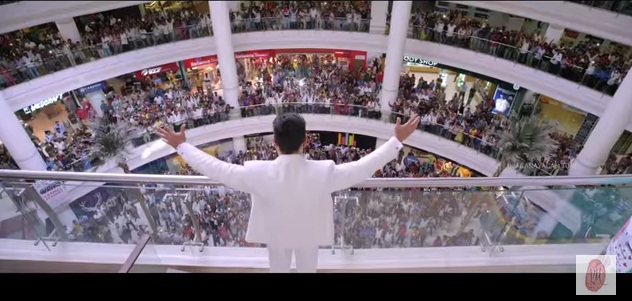
Manoranjan comes to know about his brain tumour.
Next scene. In an interview to a television channel, the anchor asks: “What is the most exciting moment in your life?”. Kamal: This very moment. *Thunderous applause follows*. A pensive Kamal now says, “Oru Kalaignakku adutha karakosham eppo varum ne theriyathu. Varumaa varathee nu theriyathu” (An artist never knows when he will receive his next applause. He won’t even know whether it will come or not) indicating that he is nearing the death bed.
After learning about Manoranjan’s cancer, Chokku laments that Manoranjan concealed this from him. “I have been loyal with him for more than 27 years. How can he hide this?,” asks Chokku. But Chokku also hides the most pivotal secret of Manoranjan’s life by hiding the letter of Yamini. Hahaha, what a brilliant piece of writing. Another, lovely scene with Chokku is when he reads Yamini’s letter that he has hidden from Manoranjan for 25 years. The letter that actually made Manoranjan a villain to Manonmani. And, we see the below on screen. First, his shadow is juxtaposed to the villain font on screen (from Yamini’s point of view) and then, Manoranjan himself comes and stands next to the font (Manoranjan is convinced that he is the villain). Masterly!
When death chases him, Kamal Haasan wants to be remembered by his fans for delivering a classic last film that will stay in their hearts with his mentor Margadarisi who churned out five consecutive classics with him in the past. He has very little time and decides that art is the only undying form in the world. “Kadhal (Andrea), Paasam (family), Thank you (fans), Sorry (Parvathy Menon) ithalaam solrathuke neram illanu puriya aarambikkuthu,” he says to Margadarisi.
They decide to make a film called Uttama Villain set in the eighth century.
The relation between the scenes in the 21st century portions and the 8th century portions is crucial to the film’s understanding.
The 8th century portions begin with the introduction of Uttaman where he escapes deaths from various threats and it is narrated in two lengthy song sequences. Though interesting, everyone must have started scratching their heads by now questioning its relevance to the story.
If you listened to these lines properly, “தென்பாண்டிச் சீமைக் கூத்து, சேர நாட்டு தையம் சேத்து”, it is the first clue that Uttaman is the King Karapagavalli sought help to. While the action happens in the Pandiya kingdom, Kakaapu Sundar repeatedly says, “Senguttavan,” the name of the king who reigns the Cheran kingdom. That Uttaman and Senguttuvan are one is revealed in those lines cleverly.
Cut to the present.
This is the most important scene which propels the further portions of the 8th century.
Manonmani (Parvathy), accompanied by her father Jacob, comes to meet her biological father (Manoranjan) for the first time. As Jacob opens the door and brings Manonmani, we see a beautiful building as the backdrop from the point of view of Manoranjan. Few seconds pass. The building backdrop is revealed to be a set prop prepared for the film shoot. This is a frame where Manoranjan realizes that Jacob is indeed that canvas and he is the real father.
The moment the backdrop is shown on screen, everyone in the theatre murmurs softly to their friends, “Machan set da.” That’s where Kamal Haasan says “Machan, ithu META da” to the audiences 🙂 The set prop is a deliberately used tool to bring out the tacky sets used in our Tamil films. I’m also of the opinion that the sinful computer graphics with the Tiger is also planned and staged on the similar lines.
And the conversation begins between Manonmani and Manoranjan. When Manoranjan says, “Nee paakka apdiye…, ” Manonmani quickly interrupts and says, “Fortunately, naan ungala maari illa. Apde enga amma saaayal.” The very next second, Manonmani realizes that she is folding her hands in the same way Manoranjan does and quickly changes it. This is an indication that Manonmani indeed has some qualities of Manoranjan even though she believes she doesn’t possess any.
When Manonmani says Jacob is her hero, Kamal asks, “Apo naan? Villain? Well, athu un kadhaila. At least en kadhailayaachu naan hero va iruka try panitruken”
If you get the underlying meaning in the above line, the entire eighth century portions will be intriguing to follow.
Manoranjan reveals that he is trying to be a hero in his movie-within-the-movie. This is the second clue that Uttaman is indeed the King who saves Karpagavalli in the movie-within-the-movie. By playing hero (Uttaman) on screen, Manoranjan thinks he is seeking penance for leaving his daughter and Yamini in the dark.
Cut to the movie.
The story of Mutharasan (Nassar), a greedy king who kills his brother-in-law and sister to attain the throne, unfolds in a song sequence. His astrologers say – “கோர மரணம் – ப்ராப்தி ரஸ்து.” . And then he learns about Uttaman, a folklore artist who escaped death five times by a whisker, and brings him to get the boon of immortality. Uttaman learns that Karpagavalli, the rightful heir to the throne, is imprisoned by Mutharasan. How Uttaman rescues Karpagavalli forms the rest of the eighth century portions.
The connections between Karpagavalli and Yamini are quite evident as few scenes go on. Karpagavalli writes a letter to the neighbour king, but he never responds. Yamini writes a letter to Manoranjan but she never gets a reply. If Chokku is the culprit in Manoranjan’s life, Sudalai Muthu (Shanmugarajan), who hands over the letter to Mutharasan, is the culprit in Karpagavalli’s life. Meanwhile, Kakaapu Sundar (Gnanasammandham) is the only supporter of Karpagavalli. Jacob is the sole guardian of Manonmani. Kakaaapu Sundar’s only wish is to thwart Mutharasan from the throne and make Karpagavalli the queen. Here, Jacob wants to fulfil the last wish of Yamini, to make Manonmani meet Manoranjan.
Another evident reference that Uttaman is indeed Manoranjan is made when the former suggests to Mutharasan that being an unforgettable artist in people’s hearts is one of the ways to attain immortality. Because, that is what Manoranjan thinks too; to be a memorable artist in people’s hearts.
If you also analyse the characteristics of Mutharasan, it’ll be understood that Mutharasan’s character is nothing but the reflection of Manoranjan’s villainous side and Uttaman is Manoranjan’s heroic side. Manoranjan hides his cancer and Mutharasan hides that he is one-eared.
Cut to the present. My most favourite sequence in the film!
Manonmani now reads the letter written by Manoranjan to Yamini. Remember, till this minute, Manoranjan has not reconciled her relationship with Manonmani. She still thinks him as villain. But, she is naturally being nice to him after getting to know about his cancerous condition.
As Manonmani reads the letter that brings to fore the real (Uttama) face of Manoranjan, Manoranjan removes the make-up he put for the film from his face. What a poetic piece of writing this is!
Manonmani breaks into tears. This is the moment where Manoranjan feels he has completely reconciled his relationship with her daughter. You can see the pride and joy in his face as he watches her from outside the window.
And the stage is set for Iraniya Naadagam.
என் உதிரத்தின் விதை, (The seed of my blood)
என் உயிருதிர்த்த சதை, (The flesh of my flesh)
வேறொருவனை பகவன் என பொறுத்திடுவேனா! (Will I tolerate you calling another “Sire”?)
The camera focuses on Jacob and Manonmani from Manoranjan’s point of view. That explains the above lines. In the song, Pragaladan who is a lord Vishnu devotee finally accepts his father Iraniyan as God. And the final twist that Uttaman is indeed the king whom Karpagavalli wrote the letter to is revealed.
Also, if you remember, the initial teaser of the film revealed these lines first bespeaking the importance of father-daughter relationship to the story.
The climax is another master-stroke. There’s no melodrama. He dies. Everyone bursts out in laughter watching his film. Arpana calls up Manohar and Manonmani. They break into tears.
Manorajan shines on screen with a crown on his head. He’s immortal now. *Credits roll*
Kamal sums up the entire film in four lines towards the end.
சாகா வறம் போல் சோகம் உண்டோ! (Is there anything sadder than immortality?)
தீராக் கதையைக் கேட்பார் உண்டோ! (Will there be listeners for an endless story?)
மாளாதது கலையும் கவியும்! (Undying is art and poetry)
மாயாயதென்றும் நம் அறிவும் அன்பும்! (Undying is knowledge and love)
Kamal Haasan’s consummate skill in screen-writing is mind-blowing. The spellbinding metaphors and discussion-igniting subtexts are what make watching a Kamal Haasan film multiple times purely rewarding. And, Uttama Villain is one such film; one for the ages. And, a big thanks to Lingusamy and Thirupathi Brothers for making this true cinema alive.
Pictures Courtesy: Ulaganayagan Tube YouTube Channel
*******************************************************************************************************************
Written by Surendhar MK

